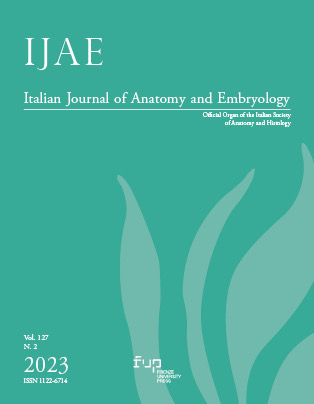Published 2023-12-31
Keywords
- gut microbiota,
- newborn microbiota,
- bifidobacteria,
- breastfeeding,
- vaginal delivery
- cesarean delivery ...More
How to Cite
Copyright (c) 2023 Mariangela Mazzone, Maria C. Di Marcantonio, Gabriella Mincione, Raffaella Muraro

This work is licensed under a Creative Commons Attribution 4.0 International License.
Abstract
During the first year of life, development and balance of newborn gut microbiota are strongly influenced by external factors such as delivery mode, breastfeeding, duration of pregnancy, mother diet and lifestyle, siblings and pets, environment, and antibiotics administration. Gut microbiota colonization starts with facultative anaerobes and continues with the establishment of anaerobic genera of which Bifidobacteria are the gold standard of a healthy gut neonatal microbiota. Scientific literature traditionally describes the fetus as sterile in the womb and identifies the membranes rupture as the beginning of microbial colonization. Vaginal delivery is an important source for the onset of infant colonization which will then continue with the transfer of a new selection of intestinal bacteria with breastfeeding. During cesarean delivery a direct contact of the mouth of newborn with the vaginal and intestinal microbiota is absent, and environmental bacteria play an important role for infants intestinal colonization. Nature has ensured that newborns receive other specific maternal bacteria, through a subsequent method of transfer: breastfeeding. We present a brief and comprehensive state-of-the-art in order to encourage natural childbirth and breastfeeding whenever possible and discuss innovative directions for develop new ad hoc personalized treatments in order to restore physiological microbiota.


